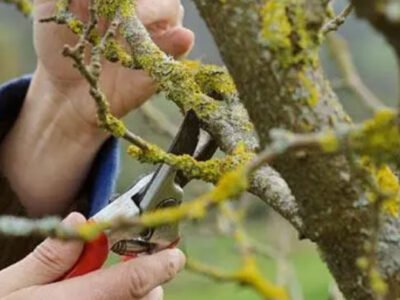Exploring one’s lineage and building a family tree can be both fascinating and deeply personal. Genealogy research connects individuals with their ancestry, offering insights into family history, cultural heritage, and personal identity. For detective work, it involves piecing together bits of historical evidence to craft a coherent narrative of one’s origins. Its importance is profound, as it allows us to understand where we come from, preserve stories for future generations, and can even have legal implications for matters such as inheritance rights or citizenship claims.
However, genealogical exploration becomes decidedly more complex when it crosses international borders. Records might need to be retrieved from distant authorities, written in languages not understood by the researcher, or subject to varying laws and regulations that govern their access and use. This is where apostille services play a key role. An apostille is a form of authentication issued to documents for international use, simplifying the process of proving their legitimacy. In the context of genealogy, having an apostille can mean the difference between hitting a dead end and unlocking new chapters of family history.
The Apostille: Its Importance for Genealogy Enthusiasts
When researching your ancestors’ past, you might come across the term “apostille.” But what does it mean? An apostille is an official form of authentication for documents to be used in nations that are part of the Hague Convention of 1961. Think of it as an international form of notarization that confirms document authenticity for use across various countries.
For those gathering important family documents like birth certificates, marriage licenses, and death records from around the world, the apostille ensures that these documents are legally recognized internationally. This element is important for genealogists who need to verify familial connections, perhaps for claims of dual citizenship or inheritance in other countries. Lacking an apostille might lead to unexpected administrative roadblocks, which highlights its importance for genealogists as they seek to piece together their family histories.
Apostille Certification: Necessary Steps for Genealogists
When genealogists require official recognition of their documents in a foreign country, understanding the apostille certification becomes necessary. This standardized procedure confers international legitimacy to documents, allowing them to be accepted across nations that are part of the Hague Apostille Convention. The initial step in this process involves determining which specific genealogical records require the apostille seal. This typically includes birth certificates, marriage records, death certificates, and legal papers pertinent to family history research.
Once the relevant documents are sourced, genealogists must ensure they are in the proper format, with some requiring state-issued certified copies. To facilitate the apostille process, it’s practical to consult with the destination country’s consulate or embassy regarding particular documentation requirements and inquire if translations are needed. With the documents in order, they are then sent to a designated competent authority, usually the Secretary of State or a comparable entity, which will check the documents and attach the apostille certification.
Apostille Services: Their Role in Genealogy Research
When researching your family history across different countries, it’s likely you’ll require an apostille. Outsourced apostille services are experts in acquiring these validations, simplifying the task of authenticating your ancestral records for overseas authorities. Selecting a professional service instead of attempting the process independently can be a time-saver and reduce aggravation, particularly if you’re not well-versed in the standards of international paperwork.
These providers are also responsible for the careful management and correct processing of documents, ensuring their authenticity and minimizing the risk of disapproval. It’s important to choose a reputable provider to prevent unnecessary delays in your research. Seek out an apostille service known for dependability and promptness, one that communicates clearly about its methods and offers straightforward pricing to preclude unanticipated delays or concealed expenses.
International Genealogy: Global Variations
When exploring international genealogy, one must be prepared to negotiate the complex document requirements that differ from country to country, adding a layer of challenge to any global family history pursuit. As we search for pieces of our past across borders, it becomes evident that not all records are easily accessible or standardized. For instance, certain case scenarios may arise where having apostilled documentation is key.
What’s more, the pursuit of ancestral information is heavily influenced by local laws, which can either permit a smooth research process or impose stringent restrictions on the accessibility of family records. It’s the understanding of these unique international subtleties that equips genealogy enthusiasts with the ability to piece together their global family portrait with accuracy and respect for the governing protocols.
Technology and Apostille Services: The Future of Genealogy Research
Genealogy research has long been a difficult task, relying heavily on the accuracy and authenticity of documents. Apostille services play a key role in ensuring that records such as birth certificates, marriage licenses, and death certificates are recognized internationally as genuine. With digital advancements, the apostille process, traditionally paper-based and steeped in bureaucracy, is undergoing a major transformation.
The possibility of electronic apostilles, or e-apostilles, streamlines the validation process, allowing genealogists and researchers to procure necessary documents more swiftly and securely. As we look to the future, the integration of technology in genealogy research is likely to broaden, with advances like blockchain potentially offering new methods for confirming the provenance and credibility of historical data. These technologies could revolutionize the field, making it easier for individuals to trace their lineage and piece together their family history with unprecedented ease and accuracy.
This article has explored the importance of apostille services in genealogy research. By providing a streamlined process for authenticating documents across international borders, these services play an important role in illuminating your family’s past. Whether it’s birth certificates, marriage records, or other key documentation, having them recognized globally through an apostille can pave the way for a hassle-free investigation into your lineage.


















Comments